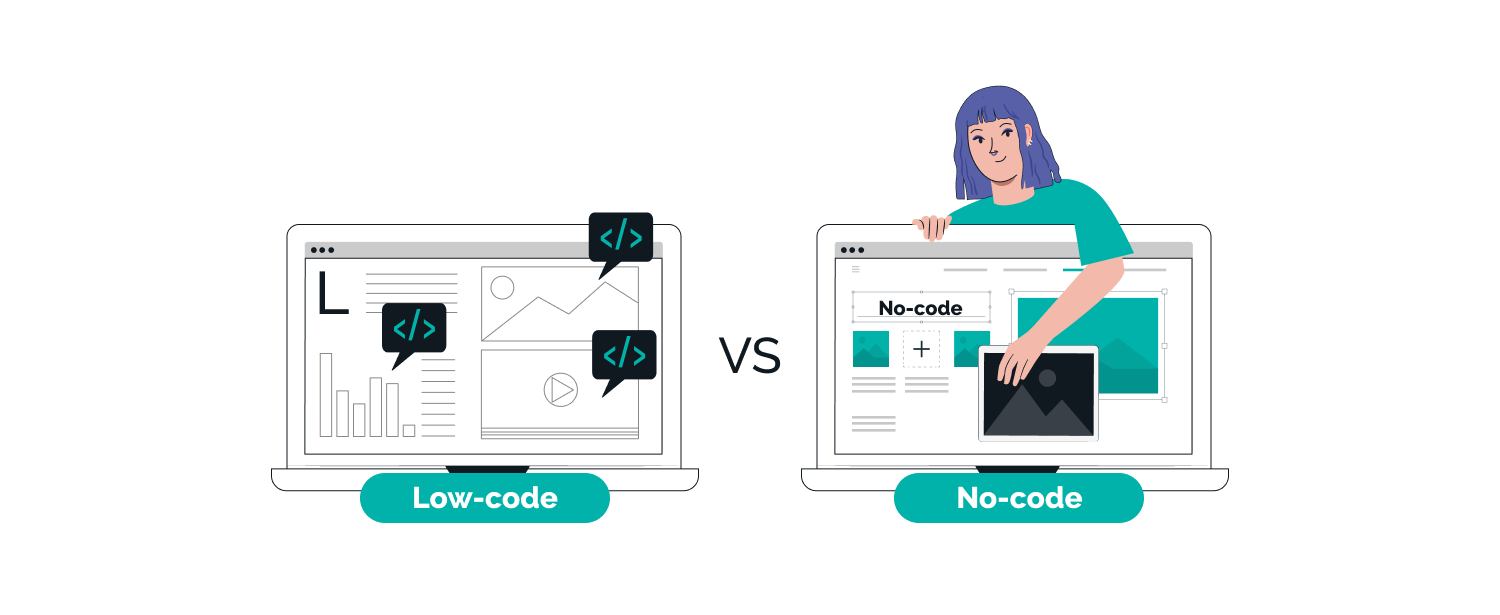Rise of Zero-Code and Low-Code Platforms in USA Mobile App Development: A Game Changer for Businesses
Discover how low-code and zero-code platforms are reshaping mobile app development services in San Francisco, New York, and across the USA.
In the present high-speed digital scene, mobile app development is developing quickly. Companies are feeling the squeeze to put up apps for sale to the public quicker while monitoring costs. As a reaction, zero-code and low-code stages have acquired notoriety, offering a quicker and more effective way to deal with development. This shift is especially huge for mobile app development services in San Francisco, mobile app development services in New York, and across the more extensive mobile app development company in the USA.
These stages offer another methodology, empowering companies to make practical, easy-to-use apps without depending vigorously on conventional coding. This article digs into the ascent of zero-code and low-code stages and how they are changing mobile app development in the USA.

What Are Zero-Code and Low-Code Stages?
Zero-code and low-code stages are intended to rearrange the app development process. They permit clients, even those with negligible specialized ability, to fabricate apps through instinctive, simplified interfaces and pre-constructed modules. This shift empowers companies to make apps all the more rapidly and at a lower cost, contrasted with customary development strategies.
- Zero-code stages: No programming abilities are required. Clients depend exclusively on visual points of interaction to collect their apps.
- Low-code stages: Some coding information might be required, yet most of the app building process is dealt with through a visual connection point, definitely lessening how much custom code is required.
The developing interest for these stages is being driven by the requirement for quicker, more adaptable mobile app development, particularly in aggressive business sectors like mobile app development services in San Francisco.
![Mobile App Development Process [8 Steps to Develop App]](https://media.excellentwebworld.com/wp-content/uploads/2024/05/27112344/app-development-process-steps.webp)
How Can These Stages Effect Mobile App Development in the USA?
Quicker Time to Market
One of the greatest benefits of utilizing zero-code and low-code stages is the speed at which apps can be created and sent. Customary development techniques require a long time of arranging, coding, and testing. Nonetheless, zero-code and low-code stages cut development time by empowering engineers to construct and send apps within the space of weeks or even days. This is a significant advantage for companies in speedy business sectors like mobile app development services in New York, where the capacity to enhance rapidly is urgent.
Lower development Expenses
One more key advantage of low-code and zero-code stages is cost reserve funds. By diminishing how much manual coding is required, companies can essentially decrease the assets expected to construct an app. This is especially beneficial for new businesses and more modest companies hoping to enter the serious mobile app space in urban communities like San Francisco, where development costs are typically high. The capacity to decrease above makes these stages a distinct advantage for the mobile app development company in the USA.
Engaging Non-Engineers
Zero-code stages engage non-specialized groups to partake in the app development process. For instance, showcasing, deals, and other non-specialized offices can undoubtedly make their own apps without depending on developed groups. This democratization of app development is particularly significant for companies in urban communities like New York and San Francisco, where readiness and responsiveness are vital to remaining serious.
Versatility and Adaptability
Albeit low-code and zero-code stages were at first seen as reasonable for straightforward apps, headways in technology have made them adaptable for big business-level apps. Present-day stages offer a scope of incorporations, adjustable elements, and the capacity to deal with complex functionalities. This makes them a practical choice for enormous associations looking for mobile app development services in San Francisco and across the mobile app development company in the USA.

Why Are These Stages Moving?
The shift toward low-code and zero-code stages is something other than a passing pattern. Here's the reason they are getting momentum, especially for mobile app development services in New York, and then some:
The Requirement for Computerized Change
As companies across the USA speed up their digital change methodologies, there is a developing interest for mobile apps that help business tasks. Conventional development strategies frequently battle to stay up with this interest, making low-code and zero-code stages the best answer for quicker conveyance.
Lack of Gifted Designers
There is a critical deficiency of gifted engineers in the USA, which represents a test for companies attempting to create apps in-house. Low-code and zero-code stages assist with overcoming this issue by empowering non-designers to fabricate apps. This is particularly basic for companies depending on mobile app development services in San Francisco and other tech centers where engineer compensations are high and ability is cutthroat.
Customization and Personalization
Notwithstanding the usability, low-code, zero-code stages actually offer more than adequate space for customization. Clients can assemble exceptionally customized apps custom-made to their particular business needs, whether they work in the online business, medical care, or fintech areas. This is significant for companies working with a mobile app development company in the USA to guarantee their app hangs out in a packed market.
Mix with Existing Frameworks
Numerous companies in San Francisco, New York, and across the USA have put resources into different programming stages to run their activities. Zero-code and low-code stages are intended to handily incorporate with existing frameworks, guaranteeing smooth changes and disposing of similarity issues.

Is low-code and zero-code the eventual fate of mobile app development?
While zero-code and low-code stages have surely cut out a specialty in the mobile app development space, they are not without impediments. Complex, exceptionally altered apps with extraordinary functionalities actually require conventional development aptitude. Be that as it may, for countless use cases—especially for inward business apps, client entryways, or MVPs—these stages are ending up an exceptionally successful arrangement.
As mobile app development services in San Francisco and across the USA keep on developing, companies are probably going to embrace a half-and-half methodology, consolidating the advantages of both low-code/zero-code stages and conventional turn of events. The adaptability and speed of these propositions will just keep on making them an essential instrument in the USA's mobile app development scene.

End
The ascent of zero-code and low-code stages is reforming the mobile app ideas process in the USA. Whether it's lessening costs, accelerating development, or empowering non-specialized staff to assemble useful apps, these stages offer various advantages for companies in San Francisco, New York, and then some. By embracing this new methodology, companies working with mobile app development services in San Francisco or any mobile app development company in San Francisco can remain in front of the opposition and put up imaginative apps for sale to the public quicker than any time in recent memory.

Comments
Post a Comment